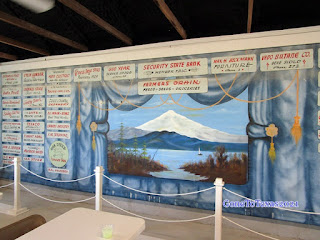When I was working with students, I often tended to hear their questions or incorrect answer to various questions. That was no surprise – the kids were learning, gaining their knowledge and had a lot to process.
These days , meeting with various people (who are mature, often with college degrees, who have traveled to many places in the world, and, in many cases, held important position at their work places), I am repeatedly stunned with “thunders” our interlocutors throw from time to time.
Here are some examples:
- There is no such city in Mississippi as Greenville – from a person who originates in that state and lived in Mississippi for many decades (well, I checked, Greenville is the county seat of Washington County, MS) .
- Yuma? – from a person who has lived in Arizona for some years and still lives there – they did not know what we were talking about – they had never heard of Yuma, AZ.
- A song in English which lyrics mention “Zulu” and “Africa” is a Polish song and relates to Polish traditions – according to a native American-English speaker.
- Chianti? Is it a dance? (no, it is a type of wine)
- “I did not know you have corn in Poland.” (???)
I am aware that no human is all-knowing and I am no different in that matter. No judgment here – I do not write about it to criticize anybody, simply do not know what to think about such peculiarities considering those persons experiences and education.
Talking about general knowledge - I am aware I have forgotten a lot of information we were expected to memorize when I was going to school. In the school system I have experienced, all the school subjects were mandatory – there were no optional ones. Most of them were purely theoretical. Even at Chemistry classes it was all about learning by heart, no practical experiments at all. Although I did not complain about that then, the level of knowledge expected to be digested by us, students, was often beyond general. Since I was not going to become a chemist, I did not have the heart to fill my mind with all the atomic numbers of each end every chemical element (which was required by our Chemistry teacher). I remembered only a few, the most useful ones regarding solving chemical equations.
I must admit that my approach brought me some difficulties during written tests - when we were to solve given chemical problems and were not allowed to use any reference resources beside our brains. Anyhow, nowadays, of all the atomic numbers, I can only recall 1 - the atomic number of Hydrogen.
Another example - in Physics, we needed to memorize not only the SI units terminology. The older system of units was preferred by our teacher. Why? Nobody knew. The lady just liked it better.
Within the years, a lot of what I was taught/learned has faded away. Not everything, though. Occasionally, I exercise my gray cells trying to remind myself this and that. An example here are the names of the countries and their capital cities which we also had to memorize when we studied a particular continent. Then, we were expected to recite the names and show those countries and cities on the map. I did not like that part - any hesitation was disapproved by the teacher. Besides that, during tests, we were given a diagram of the continent we currently studied and was told to complete it with the names – countries and capital cities again.
As I said before, the knowledge that has not been used fades away. However, it does not disappear completely. When I look up the names of capitals cities I cannot recall, they seem obvious and come back again.













